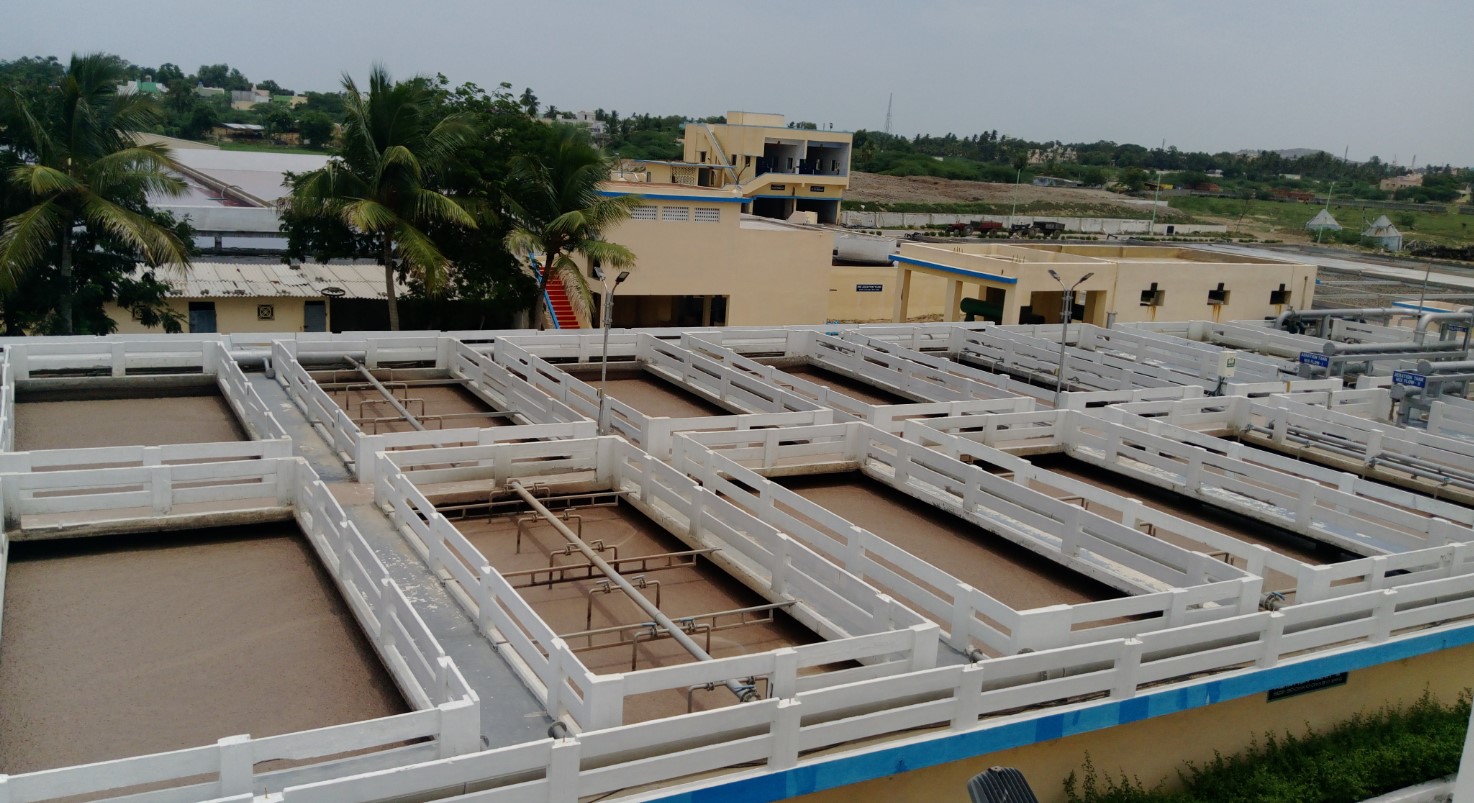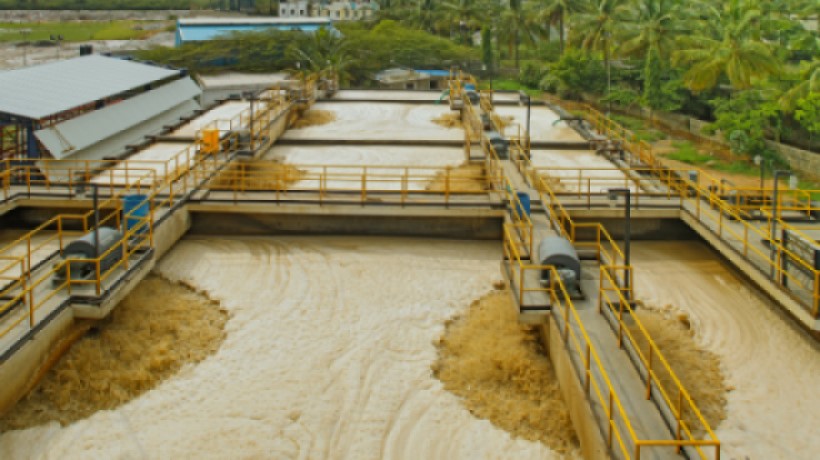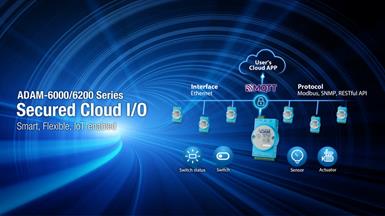ITRI and Advantech Helped Ranitec in India to Deploy Intelligent Wastewater Management Solution
9/1/2020

Introduction
The Water Technology Research Division of the Industrial Technology Research Institute (ITRI) in Taiwan and Advantech helped the biggest Common Effluent Treatment Plant in Tamil Nadu upgrade their outdated wastewater treatment system to reduce total operation cost and energy consumption, as well as increase water recovery rates.
India is not only the second biggest producer of footwear and leather garments in the world but also accounts for around 12.9% of the world’s leather production of hides and skins. Tamil Nadu is the southernmost state of India, where over 50% of tanneries in India are located. The industry is highly water-intensive. Even a small tannery with a capacity to process 3 to 4 tonnes hides and skins a day uses up over 100,000 liters of water a day—the daily household requirement of at least 2,500 people. Due to the poor water resources compounded with the increasing population, pollution, and the lack of efficient water management, this state is facing severe water stress for many years. To help resolve this, a non-profit company, Chennai Environmental Management Company of Tanners, was formed to carry out the Zero Liquid Discharge (ZLD) project announced by state government, and six Common Effluent Treatment Plants (CETPs) were established in Tamil Nadu to help tanneries who were not able to install expensive water treatment facilities. Up to now, the existing CETP is now facing problems which is needed to be upgraded or improved. One of the six CETPS, Ranipet Tannery Effluent Treatment Company Ltd (Ranitec), approached the Water Technology Research Division of ITRI and Advantech, seeking solutions to improve their outdated facilities and reduce operation costs.
The patented BioNET® improved the wastewater treatment process
Ranitec, as a benchmark plant, is the biggest CETP in Tamil Nadu for tannery and leather industrial sector in India. Although pre-treatment facilities were constructed in both Ranitec and member tanneries’ sites, pre-treated wastewater still has high Suspended Solid (SS), Biological Oxygen Demand (BOD), and Chemical Oxygen Demand (COD) values, which resulted in several issues, such as Ultrafiltration (UF) and Reverse Osmosis (RO) membrane fouling, low water recovery rates and high energy consumption, as well as huge amount of dry solid waste after the final Mechanical Vapor Re-compression (MVR) process. Membrane fouling requires intense cleaning or membrane replacement and increases the operating costs. Also, Ranitec has been operating for over 2 decades, and the accumulated amount of mixed solids, which cannot be recycled or reused, is getting out of control and far from the ZLD project’s goal.
To address the above issues, ITRI proposed a pilot project by using the patented BioNET® Biological Polishing System, combined with their Membrane Bioreactor (MBR) and Electrodialysis (EDR) systems. Yaju Juang, Researcher of Water Technology Research Division in ITRI, pointed out that ITRI’s wastewater treatment solution has been proven by many companies in Taiwan, and BioNET® technology is far more advanced and cost-effective than similar solutions around the world.
The BioNET® reactor contains porous compressible carriers which offer large surface areas for the interception of SS and growth of microorganisms. After implementing ITRI’s water treatment solutions, BioNET® technology and MBR reduced ammonia for up to 96%, and both BOD and COD were also greatly reduced from wastewater - making the condensate reusable and improving water recovery rates, as well as extending the lifespan of UF and RO membranes. Moreover, EDR minimized the inlet volume of brine to MVR, and decreased energy consumption and increased the water recovery rate. After going through MBR, BioNET® and EDR, the volume of the concentrated wastewater has decreased for about 100 tonnes per day and made it more efficient to treat in the final MVR process, which easily saved Ranitec total operation cost of around one thousand US dollars per day.

Highly integrated and proven solution makes successful system replication possible
In order to remotely monitor ITRI’s wastewater treatment solutions and collect data from sensors, ITRI introduced Advantech’s hardware and water treatment industrial app. Chih Huang, AIoT Engineer at the Water Technology Research Division of ITRI, commented that ITRI and Advantech’s intelligent wastewater management solution has been used in several projects over the years. By leveraging ITRI's water treatment expertise and Advantech’s seasoned experience in industrial applications, the wastewater total solution was successfully replicated to Ranitec’s project. BioNET®, MBR and EDR systems’ programmable logic controllers (PLCs) were connected with Advantech’s ECU series Industrial Edge Computing Gateway units. The data captured from PLCs is sent to WISE-PaaS platform, allowing ITRI to easily conduct comprehensive monitoring of all data from ITRI’s office in Taiwan. Ranitec can also have WISE-PaaS access for real-time monitoring of water quality, water volume, equipment operating status and other related information for efficiency optimization. After the pilot project, an AI engine was developed out of the collected data to further optimize ITRI and Advantech’s wastewater treatment solution.
Stepping into the Internet of Things (IoT) era, water/wastewater treatment will not only need automatic monitoring and control, but also need to prepare the functions for the Cloud services. Advantech’s WISE-PaaS platform has surpassed general SCADA software in vertical and horizontal integration. Its abundant functions and tools with open architecture not only fulfill the existing system requirements but also take future expansion into consideration. Through Advantech’s global distribution network and this powerful platform, ITRI and Advantech are able to significantly increase the efficiency of project development and after-sales maintenance, as well as promoting the Intelligent Wastewater Management Solution to not only other CETPs in India, but also many other countries.



